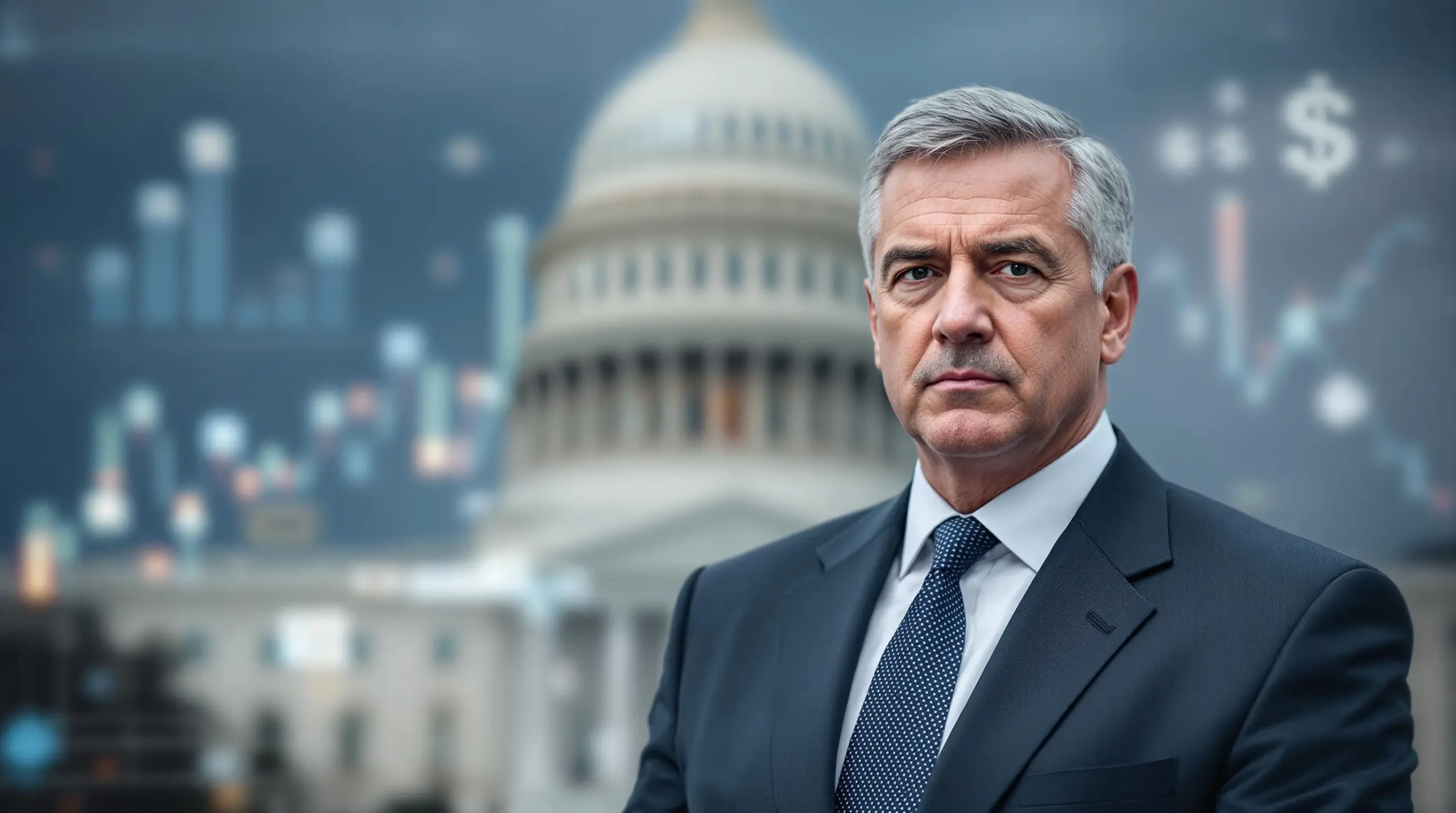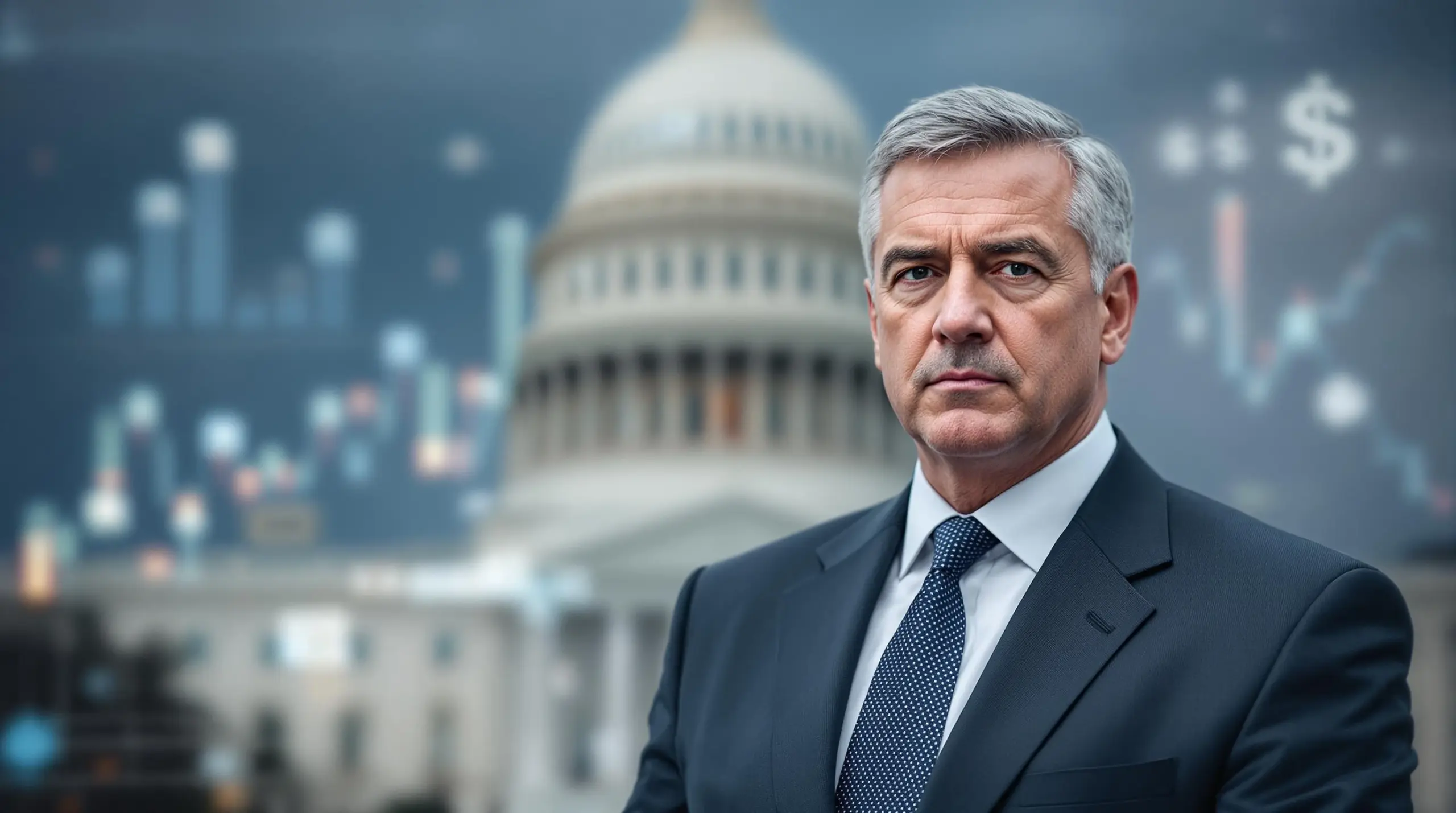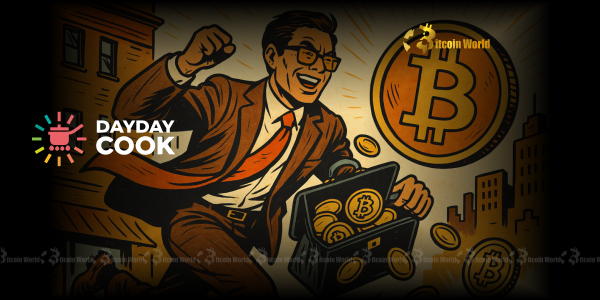BitcoinWorld

Federal Reserve: Waller’s Pivotal Stance and Its Crucial Economic Impact
The financial world is abuzz with a significant piece of news that could reshape the landscape of global finance, including the dynamic crypto market. U.S. Federal Reserve Governor Christopher Waller has publicly stated his willingness to accept the role of Fed Chair if nominated by former President Donald Trump, as reported by JinSe Finance. This isn’t just a political footnote; it’s a potential shift at the helm of the world’s most influential central bank, promising profound implications for everything from interest rates to overall economic stability.
Navigating the Future: Christopher Waller and the Federal Reserve’s Direction
Christopher Waller, a seasoned economist and current Governor on the Board of Governors of the Federal Reserve System, brings a wealth of experience and a distinct economic philosophy to the table. Before his appointment to the Fed Board in 2020, Waller served as the Executive Vice President and Director of Research at the Federal Reserve Bank of St. Louis, working closely with its then-President, James Bullard. His academic background as a professor of economics further solidifies his credentials, indicating a deep understanding of economic theory and practical application.
The role of the Fed Chair is arguably one of the most powerful economic positions globally. This individual sets the tone for monetary policy, guides the Federal Open Market Committee (FOMC) in its decisions on interest rates and quantitative easing, and acts as the primary communicator of the Fed’s intentions to markets and the public. A change in leadership at this level isn’t merely symbolic; it signifies a potential recalibration of the nation’s economic strategy, impacting everything from inflation targets to employment goals.
What Would Waller’s Leadership Mean for Monetary Policy?
Understanding Christopher Waller’s economic philosophy is key to anticipating the potential shifts in monetary policy. Generally, Waller is perceived as having a more hawkish stance compared to some of his peers, meaning he tends to prioritize controlling inflation over maximizing employment. This perspective suggests a readiness to use higher interest rates as a primary tool to cool an overheating economy.
Consider the following potential aspects of monetary policy under a Waller chairmanship:
- Inflation Targeting: Waller has consistently emphasized the importance of bringing inflation back down to the Fed’s 2% target. His approach might involve a less patient stance on inflation, potentially advocating for quicker or more aggressive measures if inflationary pressures persist.
- Interest Rate Path: While no Fed Chair acts in a vacuum, Waller’s influence could lean towards a more cautious approach to rate cuts, or even a willingness to hike rates further if economic data warrants it, prioritizing price stability over growth acceleration.
- Balance Sheet Management: His views on the Fed’s balance sheet, which expanded significantly during the pandemic, would likely favor continued quantitative tightening (reducing the Fed’s holdings of bonds) or at least a strong resistance to expanding it again unless absolutely necessary.
This contrasts with a more dovish approach, which might tolerate higher inflation for longer to support employment and economic growth. The table below illustrates a simplified comparison:
| Policy Aspect | Potential Waller Approach (Hawkish) | Alternative Approach (Dovish) |
|---|---|---|
| Inflation Focus | Primary concern; aggressive action to curb. | Balanced with employment; more patient. |
| Interest Rates | Higher for longer; quick to hike, slow to cut. | Lower for longer; slow to hike, quick to cut. |
| Balance Sheet | Prefers reduction; less inclined for QE. | More open to expansion (QE) if needed. |
| Economic Growth | Sacrificed if necessary to control inflation. | Prioritized, even with moderate inflation. |
Interest Rates Under a Potential Waller Chairmanship: What to Expect?
The direct and immediate impact of a new Fed Chair is often felt most acutely in the realm of interest rates. These rates, set by the Federal Reserve, are the bedrock upon which the entire financial system rests. They influence the cost of borrowing for consumers (mortgages, car loans, credit cards) and businesses (investment, expansion), and thus have a ripple effect across the economy.
If Waller’s hawkish tendencies translate into policy, we could see a scenario where the Fed maintains a higher federal funds rate for a longer period than some market participants might anticipate. This could mean:
- Higher Borrowing Costs: Consumers and businesses might face elevated costs for loans, potentially dampening demand for housing, vehicles, and capital investments.
- Stronger Dollar: Higher interest rates tend to attract foreign investment, strengthening the U.S. dollar. A strong dollar makes U.S. exports more expensive but imports cheaper.
- Impact on Bonds and Stocks: Bond yields would likely remain elevated, making them more attractive relative to riskier assets. For the stock market, higher rates can reduce corporate earnings by increasing borrowing costs and discounting future cash flows more heavily.
Investors and everyday citizens alike would need to closely monitor Fed communications for clues on the future trajectory of rates, as these decisions directly influence personal finance and investment strategies.
The Crypto Market’s Reaction: How Will Digital Assets Respond?
The burgeoning crypto market has shown increasing sensitivity to macroeconomic factors, particularly the stance of the Federal Reserve on monetary policy and interest rates. As digital assets mature, their correlation with traditional financial markets tends to strengthen, making Fed decisions highly relevant.
Here’s how a potential Waller chairmanship might influence the crypto landscape:
- Risk-Off Sentiment: If Waller pursues a consistently hawkish policy leading to higher interest rates, it generally makes safer, yield-bearing assets (like U.S. Treasury bonds) more attractive. This can divert capital away from riskier, growth-oriented assets like cryptocurrencies, potentially leading to downward pressure on prices.
- Dollar Strength vs. Bitcoin: A stronger U.S. dollar, often a consequence of higher interest rates, can act as a headwind for Bitcoin and other dollar-denominated cryptocurrencies. Bitcoin is sometimes seen as an alternative to fiat currencies, but in times of dollar strength, its appeal as a hedge might diminish for some investors.
- Liquidity Impact: Tight monetary policy reduces overall liquidity in the financial system. Less readily available capital can constrain investment across all asset classes, including crypto.
- Regulatory Outlook: While the Fed’s primary role isn’t crypto regulation, the Fed Chair’s views on financial innovation and stability can influence the broader regulatory conversation. Waller has previously expressed caution regarding stablecoins and central bank digital currencies (CBDCs), emphasizing the need for robust regulation and risk management. This cautious approach could shape future policy discussions affecting the growth and integration of digital assets into the mainstream financial system.
For crypto investors, this means a heightened need to monitor not just on-chain metrics, but also the broader macro-economic environment and the nuances of Federal Reserve communications. Diversification and a long-term perspective become even more critical in a potentially tighter monetary environment.
Ensuring Economic Stability: Challenges and Opportunities
The ultimate goal of the Federal Reserve is to foster maximum employment and price stability, contributing to overall economic stability. A new Fed Chair faces significant challenges in navigating the complex global economy, but also opportunities to steer the nation towards sustainable growth.
Potential Challenges:
- Persistent Inflation: Despite recent moderation, inflation remains a key concern. A hawkish Fed Chair would need to balance aggressive measures against the risk of triggering a recession.
- Geopolitical Volatility: Global events, from conflicts to supply chain disruptions, can significantly impact domestic economic conditions, making the Fed’s job even more intricate.
- Maintaining Independence: The Fed’s independence from political pressure is crucial for its credibility. A Chair nominated by a specific political figure might face increased scrutiny regarding this independence.
- Financial System Risks: Managing risks within the banking system and broader financial markets, including emerging areas like decentralized finance, will remain a continuous challenge.
Opportunities:
- Clearer Policy Guidance: A consistent and predictable approach to monetary policy, even if hawkish, can provide markets with much-needed clarity, reducing uncertainty and fostering more stable investment decisions.
- Long-Term Price Stability: If a Waller-led Fed successfully anchors inflation expectations and brings prices under control, it could lay the groundwork for more sustainable long-term economic growth.
- Strengthening the Dollar: A strong dollar, a potential outcome of tighter policy, can reduce import costs and enhance the purchasing power of U.S. consumers abroad.
Ultimately, the effectiveness of any Fed Chair lies in their ability to adapt to evolving economic conditions while staying true to the Fed’s dual mandate. The focus will be on how Waller, if appointed, balances the need for price stability with the broader goal of a robust and resilient economy.
Concluding Thoughts: A Pivotal Moment for Markets
Christopher Waller’s openness to becoming Fed Chair under a potential Trump administration signals a truly pivotal moment for financial markets worldwide. His known hawkish leanings could usher in a new era for monetary policy, characterized by a stronger emphasis on inflation control and potentially higher interest rates for longer. This shift would undoubtedly send ripples across traditional asset classes and, crucially, influence the trajectory of the burgeoning crypto market. From Bitcoin’s price action to the broader quest for economic stability, every facet of the financial ecosystem will be watching closely. Investors, businesses, and policymakers alike must prepare for the potential implications of this significant leadership change at the Federal Reserve, ensuring they are well-positioned to navigate the evolving economic landscape.
Frequently Asked Questions (FAQs)
Q1: Who is Christopher Waller and what is his current role?
A1: Christopher Waller is currently a Governor on the Board of Governors of the U.S. Federal Reserve System. He is an economist with a background in academia and research at the Federal Reserve Bank of St. Louis.
Q2: What does it mean for a Fed official to be ‘hawkish’?
A2: A ‘hawkish’ stance means prioritizing controlling inflation, even if it comes at the expense of slower economic growth or higher unemployment. Hawkish officials typically favor higher interest rates and tighter monetary policy.
Q3: How might higher interest rates impact the crypto market?
A3: Higher interest rates generally make traditional, less risky investments (like bonds) more attractive, potentially drawing capital away from speculative assets like cryptocurrencies. They can also reduce overall liquidity in the financial system, which can negatively affect crypto prices.
Q4: What is the primary role of the Federal Reserve Chair?
A4: The Fed Chair leads the Federal Reserve System, guiding monetary policy decisions (like interest rates), communicating with markets, and working to achieve the Fed’s dual mandate of maximum employment and price stability.
Q5: What is the ‘dual mandate’ of the Federal Reserve?
A5: The Federal Reserve’s dual mandate refers to its two primary objectives: to foster maximum employment and to maintain stable prices (i.e., control inflation).
Q6: Why is the potential change in Fed Chair significant for economic stability?
A6: The Fed Chair’s decisions on monetary policy directly influence inflation, employment, and the overall health of the U.S. economy. A change in leadership can signal a shift in economic priorities and strategies, impacting long-term economic stability.
Did you find this article insightful? Share it with your network to keep others informed about the potential shifts in global economic leadership and their wide-ranging impacts!
To learn more about the latest crypto market trends, explore our article on key developments shaping Bitcoin and Ethereum price action.
This post Federal Reserve: Waller’s Pivotal Stance and Its Crucial Economic Impact first appeared on BitcoinWorld and is written by Editorial Team





